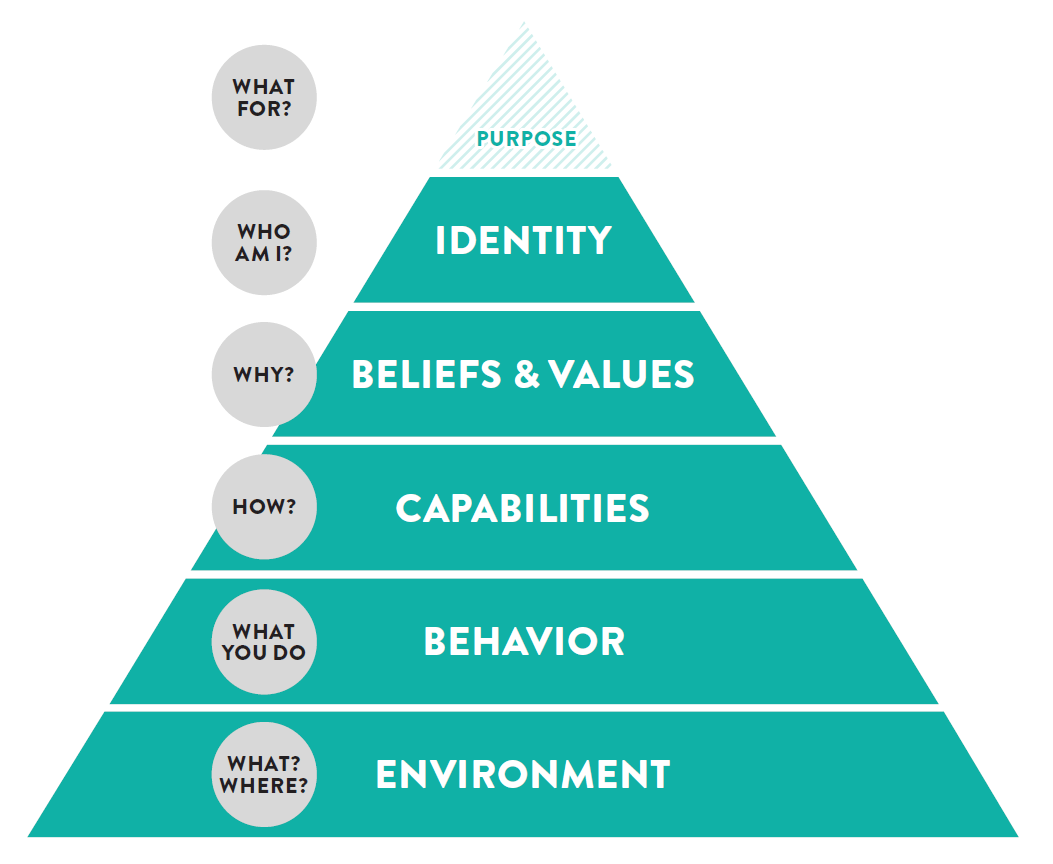Membrain's complete guide to getting coaching right
It’s hard to overestimate the value of good coaching for the effectiveness of a sales team. While organizations pour millions of dollars into sales team training and sales enablement programs, this key element is often overlooked.
In the best of cases, it’s treated as a warm, fuzzy, nice-to-have activity that can be pushed aside when necessary. And in the majority of cases, coaching is ignored But world-class organizations know better. Based on data from CSO Insights, 88% of world-class organizations devote adequate time to coaching every individual on the sales team, while only 32% of all organizations do.
Devoting time to coaching is often not enough. A Harvard Business Review study found that most managers focus on coaching the wrong people on their sales team, often on the wrong things. Managers lack time, skills, the appropriate mindset, and the visibility to know who and what and when and how to coach.
In an average month, our sales managers definitely spend adequate time coaching each individual on the sales team.

Even a moderate improvement in coaching quality can increase performance by six to eight percent across 50% of the sales force, according to the CSO Insight study. If a moderate improvement can make that much difference, what could a consistent, precise, practical, and timely coaching system do?
Dave Kurlan, CEO of sales consultancy Kurlan & Associates, has more specific data. Kurlan found that their clients who achieved only a 10% improvement in sales effectiveness from coaching salespeople were able to increase revenue by 33%.
This paper will lay out the common misunderstandings and obstacles that get in the way of building an effective coaching system, and then lay out the seven keys to achieving a consistent, precise, practical, and timely coaching system in your organization.
Chapter 1
Before we can understand how to build an effective coaching system, we have to understand exactly what coaching is–and what it is not.
Four common misconceptions that get in the way of effective coaching? Coaching is not management, training, performing, or mentoring.
Management, training, performing, and mentoring are all important factors in a successful sales organization, but it is a mistake to substitute them for coaching.
Chapter 2
Sales coaching is an active behavior guided by a mindset that focuses on helping others to achieve their best. It is:
Chapter 3
Besides misunderstandings, there are several major mistakes companies can make that reduce the effectiveness of their coaching programs.
While some high performers may also become good managers and coaches, it is not necessarily the case that they will. Knowing how to do something well does not always translate to being able to coach well. There are three main reasons high performers often make poor coaches:
Most large sales organizations send their sales managers to some form of generic leadership training, though some don’t even do this much. Very few organizations provide coaches with the tools to know who, when, and what to coach. As a result, even well-trained coaches may approach coaching in a haphazard manner.
Sales managers have many responsibilities, and many organizations make the mistake of expecting them to “fit coaching in” somewhere, without a lot of support for the activity. When this happens, coaching will rarely if ever be engaged in.
In the end, the result we are looking for is to gain the trust and business from customers. Still, very few sales departments ask for input from prospects and customers about their perception of the strengths and weaknesses of our salespeople. Integrating customer feedback from win-loss reviews can provide invaluable insights for the coach.
Oftentimes, the coach does not circle back around later to find out whether the salesperson applied their coaching and how it went. The reason for this may be that the coach doesn’t want the salesperson to feel that they’re being “checked up on,” or it may be that the coach simply doesn’t have the resources to keep track.
Good coaching makes it easy for the team to execute on sales process and methodology, supports skill growth, and reinforces the right behaviors at the right times. It improves ramp-up times and reduces excessive turnover.
A good coaching system engages all sales managers, and provides them with all the right tools to engage in coaching best practices. Such a system yields major competitive advantage for the sales organization, and creates a feedback loop by which the organization grows continually more effective over time.
Chapter 4
An effective coaching system won’t happen by accident, and it’s not just a matter of “setting aside time.” If an effective coaching system is a priority for your organization, here’s how to get there.
Start by promoting people with the right mindset, and continue by reinforcing that mindset on the management team.
This means that your organization must give up the knee-jerk practice of promoting high performers into management, and focus on finding the people who already demonstrate the right mentality for coaching.
A person with the right coaching mentality will:
Many organizations find this shift uncomfortable, especially if salespeople already feel that a management promotion is the natural next step for a high performer.
Take the time to restructure the way your team thinks about promotion. Look for ways to reward high performers in a more productive manner, while reserving management promotions for people with the right mindset.
With the right people in management, reinforce the coaching mindset with training and support. Reward coaches when their teams improve, and when they actively engage in productive coaching behaviors.
If you already have managers with the wrong mindset, help them transition from the need to be heroes in the sales force, to helping other people become the heroes.
In some cases, reorganization may be necessary. Move with caution and make sure former high performers who are not good coaches understand that they are not being demoted, but rather moved into a job that better suits them.
One of the biggest obstacles to effective coaching is the belief that it doesn’t really matter. Even organizations that give lip service to the importance of coaching often don’t invest in it at the level they invest in other aspects of the sales organization.
In order to build an effective system, you must first believe that it is important, and decide to invest in it. It won’t happen overnight, and it won’t happen without a commitment. Once sales leadership has identified coaching as a priority, then that mindset must be propagated throughout the organization.
Teach managers that coaching is one of their highest priorities, and free them of excessive reporting and other duties that get in the way of time for coaching. Encourage them to plan and prepare their coaching efforts to make the most impact.
Teach them that coaching is not a separate activity that must be placed in a corner and attended to as a side duty, but that it is central to their role in the organization.
Provide them with resources and encouragement to engage in coaching as part of their daily dealings with salespeople. Gradually, coaching should become a part of every interaction with salespeople, from a haphazard meeting on an elevator to a weekly sales pipeline review.
It’s a common misconception that a coach is doing their job if they engage in one or two good coaching behaviors. Truly effective coaching addresses a large number of practice areas across multiple levels.
One of the reasons the sales profession is often viewed as more of an art than a science is that it is incredibly complex. There are so many skills involved across so many areas that when a salesperson gets it absolutely “right,” it can look like magic.
A great coaching program addresses all of these areas to provide salespeople with support and growth across all of them. Salespeople must be skilled in account planning, call planning, prospecting, reporting, qualifying, consensus building, competitive analysis, and much more.
Within each area are a huge number of variables and related skills that effective salespeople must master.
Take a look, for instance, at how good coaching approaches the five sample areas of strategy, skills and attitude, pipeline, opportunities, and activities.
Anyone who has ever been involved in any business initiative knows the fundamental truth that change is hard. Humans are notoriously bad at it. Yet good coaching involves getting those who are coached to effect change in their attitudes, behaviors, and activities.
To do this, coaches must do more than simply tell or ask for change. They must, rather, understand what motivates humans across six “logical levels of change,” (a model from the field of NLP - Neuro Linguistic Programming) and be able to activate the appropriate level to achieve the change they want to see.
Oftentimes, when we want a salesperson to change, we look at their environment, expecting that if we change their environment (getting a new headset, for instance), that we will change their behavior. Unfortunately, that is rarely the case.
Take for instance a salesperson who is stumbling because he or she doesn’t access important decision makers.
A coach operating at the environmental level might ask the salesperson to begin inputting their activities into the CRM to “prove” that they are trying to reach the decision makers. This tries to force a change in behavior that may be rooted in something much deeper than having the right technology at hand.
An effective coach will address salespeople across all levels, based on their needs. At the behavioral level, they can ask what behaviors the salesperson lacks that prevents access to the decision makers.
Perhaps the salesperson is simply not asking the right questions at the right times. If this is the case, the skilled coach will inquire to find out whether the salesperson possesses the capabilities to know what questions to ask and when. Many coaches may stop at this level. If they cannot get a salesperson to perform after training in capabilities, they give up. And perhaps that is for the best in many cases. However, there are levels above behavior that are worth exploring and great coaches will do so.
At the “beliefs and values” level, a great coach may ask the salesperson what they may believe about themselves that are preventing them from asking the right questions and getting to the right people. Perhaps they believe that they don’t deserve to speak with CEOs. If this is the case, then they will not be able to develop the appropriate skills until they let go of the limiting belief. Beyond beliefs are identity issues. A salesperson who does not identify as a high performer may never be able to perform as one unless they recognize this identity issue and work to overcome it.
Finally, at the top level, are questions of purpose. The well-known leadership expert Simon Sinek touts this as the most important question a person or organization can ask, in his book Start With Why. This question may seem beyond the scope of a coaching relationship and more in the realm of a mentor, but the truth is that a salesperson will never perform at peak levels for your company unless his or her purpose also aligns with yours and/or with their role as a salesperson.

Coaching is not the same as training. Instead of focusing on telling salespeople what to do, a great coach focuses on helping them discover for themselves the right things to do. To do this, coaches must be trained to ask good questions, in every area and at every level. Questioning should dig deep, and not settle for surface answers. Good questions help salespeople articulate for themselves what’s holding them back, and encourage them at a conscious and subconscious level to take ownership of the solution.
The following table shows possible questions in each of the six areas we discussed above. These should not be viewed as an exhaustive list but merely as an illustration of the depth and variety of questions coaches can employ. Note also that even within these sample areas, there is overlap and some questions from one area are equally valuable in another.
| Strategy | Skills & Attitude | Pipeline | Opportunity & Account | Call Planning | |
| What will success look like for you and the company? | Would your customers pay to access your knowledge? Why or why not? | How is your pipeline doing? Are you happy with its size and health? How would you like it to be different? | Why should they even care about this? | What is your next action to get progress toward...? | |
| What is the main outcome you would like to achieve? | What value do you bring to a prospect's business? Is it valuable enough? | Why does your pipeline include these specific deals? | What would cause them to do nothing? How strong is the incumbent? | What have you tried so far? What else could you try? | |
| How will you know that you've reached the outcome? | What skill or knowledge do you need to achieve...? | Are there any opportunities in your pipeline that aren't as promising as you originally thought? | How can you reach the people you want to talk to? | What is the likelihood of X happening? | |
| Will these outcomes make you a better salesperson? Why or why not? | What will make you go the extra mile to achieve...? | What has to happen to put more opportunities in the pipeline? | Who would you really like to have on your side? | What would you say if she said...? | |
| What will need to happen before...? | What could you be doing differently to be more effective? | What are you assuming here? Could another assumption be used? | How can you get them on your side? | Okay, how does that lead too...? | |
| What stands in the way of...? | What would you like to do less of? Why? | What happens if this large deal goes silent? | Is there anything you need from me or the company to...? | What would they need to believe/assume/predict? | |
| Interesting. Tell me more about that. | What has to happen next to work toward... | When should we meet to look at your progress on this? | How will the competition try to blow us out of the water? How can you prevent that? | Who will be on the call? Who should be on the call that isn't, and why? | |
| Which clients do you find most valuable, and why? | Are you missing any skills or resources to take the next steps toward your goals? | If we look at your win rate, deal size, and sales cycle, what can you improve? | Who are you talking to? Who should you be talking to? | What kind of support can you get from an internal stakeholder in this meeting? | |
| Have you wone deals and accounts that you should have stayed away from? | How did your competition outsmart you in the latest deal you lost? How can you prevent that this time? | Which stage of the pipeline is the hardest one to move through? | Why would the customer leave the status quo to go with your solution? Why not? | What questions may be asked to shoot you down on this call? |
| Environment | Behavior | Capabilities | Values & Beliefs | Identity | Purpose | |
| Is there anything missing in your environment that would help you perform better? | What actions can you take to improve this part of your performance? | What skills do you need to meet your next set of goals? | What do you need to believe about yourself in order to make progress toward your goals? | How do you describe yourself? |
What is your purpose in life?
|
|
| What else can we do to support you? | Are there actions you should be engaging in more often? | How can you improve the skills you need to achieve this goal? | Were you told things in your childhood that you still believe, but perhaps aren't true? | How would you like others to describe you? |
How does that align with what you're doing now?
|
|
| What aspects of the work environment are holding you back? | What are you doing that may be holding you back? | Are there any capabilities you're lacking that are holding you back? | What limiting beliefs may be holding you back? | In what ways might "who you are" be holding you back from who you want to be? |
Is there anything holding you back from pursuing your life's purpose?
|
In order to ask the right questions, coaches need insights about the salespeople from the salespeople themselves, from systems, as well as from customers and co-workers. They need information on each salesperson so that they know who will benefit most from their coaching, and they need information on each deal.
They need this information structured so that they can quickly assess who is in need of coaching and in what areas. They need visualized data to quickly find out who is falling behind and why, to understand who to coach and when. Without this, coaches may focus too much time on the wrong salespeople.
Without a clear system, coaches often spend too much time coaching high performers, because it’s fun and feels productive; or low performers, because it feels like they need it the most. But the truth is, the most effective coaching is often done for the folks in the middle, who have the most to gain from improved skills.
Likewise, without a good system to provide insights, coaches get stuck asking the same questions over and over again just to understand where the salesperson is, instead of asking the deeper questions to help them figure out how to get where they want to be.
If your sales technology is designed with sales coaching in mind (the way that Membrain is, for instance), key questions can be built into the sales process, providing a level of automated coaching for all your salespeople.
Coaches and salespeople also need a shared language, a shared process, and a shared methodology that is systematized across the organization. Likewise, they should have shared KPIs that are easy to track. KPIs should show trend lines, and not just snapshots in time, so that coaches can see whether salespeople are improving.
By providing these tools and resources, you enable coaches to identify bottlenecks and constraints on an individual basis, and to coach the right people, at the right time, on the right issues.
Train coaches to follow up with salespeople on a routine basis. Every time they meet, they should ask the salesperson about the main things they agreed upon in the last meeting. Make this easy by providing tracking tools to document the most important take-aways and agreed upon actions.
Time is a significant constraint for most salespeople and coaches alike. Enabling salespeople to self-coach saves time for both, and leaves managers free to coach on matters that salespeople can’t coach themselves on.
To enable self-coaching, build training materials, content, and feedback into the salesperson’s daily workflow, right inside the CRM or sales effectiveness platform. This enables salespeople to pull content as they need it, when they need it. Likewise, the system can be designed to track and reinforce daily activities and behaviors to provide instant feedback and accountability. With such a system, salespeople and coaches can use their time together to focus on bigger issues.
When coaching is done effectively by sales coaches, coaching can become a team effort. As an example, joint deal reviews offer the opportunity for everyone on the team to act as a coach.
This type of effort helps to create a great coaching culture, and a continuous learning environment for everyone on the team. It also helps identify who enjoys coaching others and might become a great sales manager.


Obviously, a coaching system that achieves everything outlined in this paper is not something that will happen overnight. Nor is it something that can be driven by a single individual.
It demands the engagement of the entire organization, and that means it requires executive support.
Fortunately, it’s an easy investment to justify. The gap between world-class organizations and average organizations speaks for itself. It takes only a portion of the average annual investment in sales teams to implement an effective coaching system, and the dividends are substantial.
Even a moderate improvement can make the difference between missing and meeting quotas. A successful coaching culture and system creates substantial competitive advantage, and enables the sales force to continuously improve in effectiveness.
Find out what role Membrain can play in supporting quality coaching in your organization
From north to south, east to west, Membrain has thousands of happy clients all over the world.



